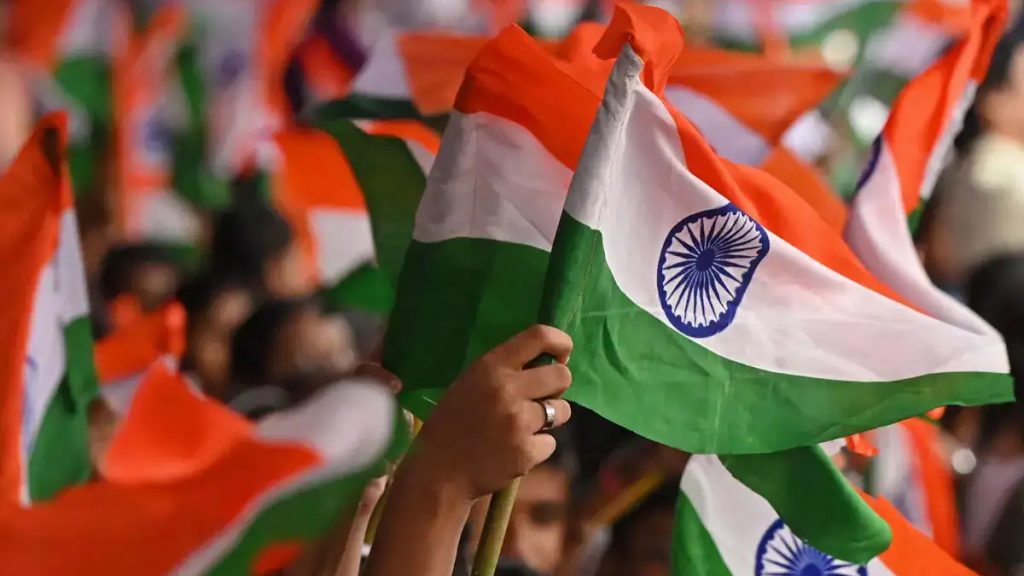Ranked 2nd globally in citizen satisfaction with democracy, India signals hope in a disillusioned world. At a time when democracies across the world are being buffeted by rising polarisation, institutional fatigue, and eroding public trust, India finds itself in an enviable yet quietly earned position.
According to the latest Pew Research Center global survey, India ranks second—just behind Sweden—among 23 nations in terms of citizen satisfaction with democracy. This may come as no surprise to those who have observed India’s democratic arc over the past decade. But it is still a moment of reflection—and pride. This isn’t merely about scoring well on a perception poll. It is a validation of India’s democratic DNA, one deeply rooted in public participation, institutional resilience, and inclusive governance.
One Democratic Rhythm
What distinguishes India’s democratic journey is not its size alone. It is the scale at which democratic engagement plays out daily—across 1.4 billion lives. From the bustling metros to the remotest hamlets, elections are not the only expression of democracy. Debates in college campuses, digital discourse, town hall meetings, and the everyday engagement of citizens with civic life have kept the flame of democracy alive. Democracy in India is not ornamental. It is operational.
Democracy That Delivers
At the core of India’s rising satisfaction with democracy is a transformation in how the state delivers. A major catalyst in this shift has been the JAM Trinity—Jan Dhan, Aadhaar, and Mobile. This digital infrastructure has laid the foundation for Direct Benefit Transfer (DBT) systems that deposit welfare entitlements— pensions, scholarships, LPG subsidies, MGNREGA wages—directly into beneficiaries’ bank accounts. This has significantly reduced corruption, eliminated intermediaries, and enhanced efficiency. The impact of JAM extends beyond fiscal management. It has created trust—a belief that governance can be clean, accessible, and effective. That belief is now being reinforced across other digital platforms. Whether it’s the Income Tax portal with pre-filled forms, the Passport Seva system that fast-tracks documentation, DigiLocker for certified digital documents, or the UMANG app offering hundreds of government services, India’s digital governance ecosystem is reshaping the citizen-state relationship. These are not merely conveniences — they are democratic bridges. They reduce opacity, shorten delivery time, and, most importantly, make governance real and reachable for millions.
Resilience Through the Storm
India has held 17 general elections and over 350 state assembly elections since independence, witnessed peaceful transfers of power, and seen its institutions survive and grow—despite challenges. This continuity, under a single Constitution, is more than a democratic formality; it’s a remarkable achievement of institutional maturity.
Democracy by Design, Not Default
A free press, a vigilant judiciary, and a spirited civil society ensure that democracy in India remains both dynamic and selfcorrecting. The system, though imperfect, has proven to be resilient by design.
A Generation of Change makers
Pe r h a p s t h e m o s t encouraging sign of India’s democratic health is the role of its youth. From climate activists in Bengaluru to tech-savvy volunteers in rural Jharkhand, young Indians are no longer waiting for democracy to serve them—they are shaping it themselves. They are leveraging digital platforms to raise awareness, demand accountability, and co-create policy. This is not mere activism; it’s citizenship at its most engaged.
The Democratic Ethos: India’s Real Strength
India’s success as a democracy does not lie in perfection—it lies in perseverance.Here, dissent is not feared but engaged with. It sparks dialogue and keeps the system dynamic. Diversity is not a hurdle—it is the bedrock of our social and institutional flexibility. And development is not seen as a privilege for a few—it is increasingly envisioned as a right for all. In a global climate marked by polarization, democratic fatigue, and rising authoritarianism, India offers a contrasting model: a democracy that is pluralistic, participatory, and persistently selfcorrecting.
The scale and complexity of India often make its governance challenges visible, but what often goes unnoticed is how those very complexities make its democratic achievements more meaningful.
Celebration Must Lead to Commitment
This recognition from the global community must not lull us into complacency. If anything, it must serve as a reminder of what’s at stake—and what still remains to be done. The democratic journey is not a destination. It is a process. One that must be nurtured, questioned, and improved. As we absorb the significance of this ranking, we must also renew our collective c o m m i t m e n t — t o transparency, inclusion, justice, and civic responsibility. Because when democracy works in a country as large, complex, and plural as India, it doesn’t merely survive—it inspires. India’s democracy may not be flawless. But it is fearless. And in its persistence lies its promise.
Author Komal Jogpal
Disclaimer
The views expressed in this article are those of the author in her personal capacity. They do not represent the official stance of the Government of India .
